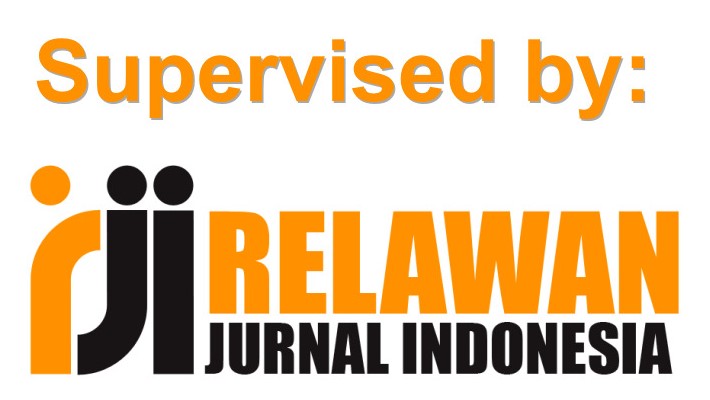Pengembangan Kompetensi Literasi Digital Pada Guru Untuk Optimalisasi Pembelajaran Jarak Jauh (PJJ)
DOI:
https://doi.org/10.31100/matappa.v4i1.905Keywords:
Digital literacy, Distance Learning, E-Learning.Abstract
The purpose of this activity is to improve digital literacy competencies and optimize the ability of teachers to use e-learning media in the implementation of Distance Learning (PJJ). The training materials are tailored to the needs of teachers as participants to overcome digital literacy problems that exist in schools. The method of implementation is carried out by the lecture method to deliver digital literacy competency material, training methods to provide direct experience in using e-learning applications, and dialogical methods. To measure the increase in participants' knowledge and understanding in this activity, questionnaires were given before and after training. The questionnaire contains tests for testing knowledge and understanding of digital literacy and the use of e-learning applications. Participants in this activity were all teachers of SMPN 2 Dewantara, North Aceh. This activity provides significant benefits of improving understanding of teachers' digital literacy competencies and skills in using e-learning applications that can be used in implementing Distance Learning.
References
Basilaia, G. (2020). Replacing the Classic Learning Form at Universities as an Immediate Response to the COVID-19 Virus Infection in Georgia. International Journal for Research in Applied Science and Engineering Technology. https://doi.org/10.22214/ijraset.2020.3021
Bhatt, I. (2012). Digital literacy practices and their layered multiplicity. Educational Media International. https://doi.org/10.1080/09523987.2012.741199
Chen, T., Peng, L., Jing, B., Wu, C., Yang, J., & Cong, G. (2020). The impact of the COVID-19 pandemic on user experience with online education platforms in China. Sustainability (Switzerland). https://doi.org/10.3390/SU12187329
Dhawan, S. (2020). Online Learning: A Panacea in the Time of COVID-19 Crisis. Journal of Educational Technology Systems. https://doi.org/10.1177/0047239520934018
Hapsari, S. A., & Pamungkas, H. (2019). Pemanfaatan Google Classroom Sebagai Media Pembelajaran Online Di Universitas Dian Nuswantoro. WACANA: Jurnal Ilmiah Ilmu Komunikasi. https://doi.org/10.32509/wacana.v18i2.924
Heggart, K. R., & Yoo, J. (2018). Getting the most from google classroom: A pedagogical framework for tertiary educators. Australian Journal of Teacher Education. https://doi.org/10.14221/ajte.2018v43n3.9
Kemendikbud. (2020). Sajian Pembelajaran Daring Bersama Duta Rumah Belajar. Www.Kemendikbud.Go.Id.
Koć-Januchta, M. M., Höffler, T. N., Eckhardt, M., & Leutner, D. (2019). Does modality play a role? Visual-verbal cognitive style and multimedia learning. Journal of Computer Assisted Learning. https://doi.org/10.1111/jcal.12381
Warsita, B.-. (2019). Pemanfaatan Portal Rumah Belajar Untuk Meningkatkan Kualitas Pembelajaran. Jurnal Teknodik. https://doi.org/10.32550/teknodik.v0i0.355
White, J. (2017). What is Digital Literacy? In Digital Literacy Skills for FE Teachers. https://doi.org/10.4135/9781473909571.n2
Downloads
Published
Issue
Section
Citation Check
License
Jurnal ini memberikan akses terbuka langsung dengan prinsip bahwa membuat penelitian tersedia secara bebas untuk publik mendukung pertukaran pengetahuan global yang lebih besar.
Semua artikel yang diterbitkan dapat di Akses secara Terbuka atau Gratis untuk semua orang baik untuk dibaca maupun diunduh di bawah lisensi CC-BY.
Ppenulis mempertahankan kepemilikan hak cipta untuk artikel mereka, tetapi penulis memberikan izin kepada orang lain untuk menggunakan konten publikasi di Matappa secara keseluruhan atau sebagian asalkan karya aslinya dikutip dengan benar.
Hak cipta mencakup hak eksklusif untuk mereproduksi dan menyampaikan artikel dalam semua bentuk dan media, termasuk cetak ulang, foto, mikrofilm dan reproduksi serupa lainnya, serta terjemahan. Reproduksi bagian manapun dari jurnal ini, penyimpanannya dalam basis data dan transmisi dengan bentuk atau media apa pun, seperti elektronik, salinan elektrostatik dan mekanik, fotokopi, rekaman, media magnetik.

MATAPPA is licensed under a Creative Commons Attribution 4.0 International License.








